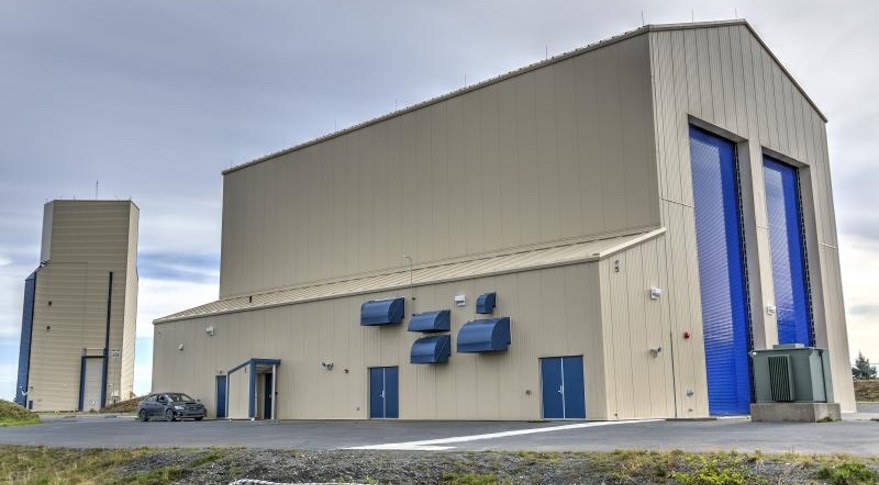Alaska Launch Shrouded in Secrecy

WASHINGTON — A secretive California company carried out a suborbital launch from an Alaska spaceport July 20, but a week after the event few details about the event are clear, including its outcome.
Astra Space carried out a launch at 6 p.m. Eastern July 20 of its "Rocket 1" vehicle from Pacific Spaceport Complex – Alaska on Kodiak Island, Alaska. Foggy conditions made it difficult to observe the launch, according to one local reporter covering the event.
Astra Space received a license from the Federal Aviation Administration's Office of Commercial Space Transportation (AST) in March for a suborbital test flight of its vehicle. According to the license, the launch would carry an inert upper stage on a trajectory traveling to the south. The FAA also issued a notice to airmen restricting airspace in the vicinity of the launch site from July 14 to 21 "due to rocket launch." [SpaceX Lands Rocket in Harshest Conditions to Date and Attempts to Catch Fairing]
The launch, though, does not appear in the list of licensed launches maintained by AST on its website, even though the list includes launches, both orbital and suborbital, that took place since the Astra Space event. In a statement provided by the FAA July 24 in response to a SpaceNews inquiry, it confirmed that the launch took place but that a "mishap" of some kind occurred.
"The Astra Space, Inc. launch from the Pacific Spaceport Complex Alaska at Kodiak Island on Friday, July 20 experienced a mishap," the FAA stated. "It was an FAA-licensed launch, and the agency is reviewing the event."
Pacific Spaceport Complex – Alaska, formerly known as the Kodiak Launch Complex, is operated by Alaska Aerospace Corporation. Craig Campbell, president and chief executive of Alaska Aerospace, told SpaceNews July 27 that a nondisclosure agreement with the customer limited what he could discuss.
"Our customer has requested we not discuss their operations with the press," he said. "I can confirm that a launch from the Pacific Spaceport Complex – Alaska occurred on Friday, July 20th and that the customer is very pleased with the outcome of the launch."
Get the Space.com Newsletter
Breaking space news, the latest updates on rocket launches, skywatching events and more!
Campbell made no mention of a mishap or other incident taking place during the launch. "While a post-launch team is reviewing the results of the launch, I can state that there was no material damage to our facilities as a result of this launch," he said. "We look forward to working with this customer to support their next launch from Alaska."
Astra Space is one of a growing number of companies developing small launch vehicles for dedicated launches of small satellites, but has kept a very low profile, lacking even a publicly accessible website. The company is based in Alameda, California, where it leases a building from the city in an area that formerly hosted a naval air station. In its lease documents, it described efforts to develop "next-generation launch services" starting with a rocket called Astra capable of placing 100 kilograms into low Earth orbit.
Astra Space is not the only small launch vehicle company interested in launching from Pacific Spaceport Complex – Alaska. Prior to this launch, Vector was at the spaceport, performing operations tests ahead of the first launch of its Vector-R rocket from the site, planned for later this year. Rocket Lab has also shown interest in the spaceport, identifying it as one of four finalists for its second launch complex. The company plans to announce the location of that complex in August.
This story was provided by SpaceNews, dedicated to covering all aspects of the space industry.
Join our Space Forums to keep talking space on the latest missions, night sky and more! And if you have a news tip, correction or comment, let us know at: community@space.com.

Jeff Foust is a Senior Staff Writer at SpaceNews, a space industry news magazine and website, where he writes about space policy, commercial spaceflight and other aerospace industry topics. Jeff has a Ph.D. in planetary sciences from the Massachusetts Institute of Technology and earned a bachelor's degree in geophysics and planetary science from the California Institute of Technology. You can see Jeff's latest projects by following him on Twitter.










